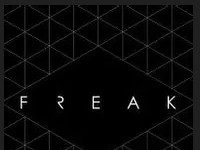:max_bytes(150000):strip_icc():focal(749x0:751x2)/Zohran-Mamdani-Bernie-Sanders-Alexandria-Ocasio-Cortez-election-rally-110125-bfe78ad83d64434ba485908b713d1282.jpg)
Democratic socialism is having a moment, between Zohran Mamdani‘s buzzy mayoral campaign in New York City, Omar Fateh’s candidacy in the Minneapolis mayoral race and the ongoing influence of Rep. Alexandria Ocasio-Cortez and Sen. Bernie Sanders.
But even as their progressive platforms pick up steam, American politicians who label themselves as democratic socialists haven’t quite been able to shake the historic connotations that come with socialism, including bleak imagery of North Korea, Soviet Russia, and the National Socialist German Workers’ Party — a.k.a. the Nazis.
Unlike the oppressive governments that have been affiliated with the socialist movement, modern-day democratic socialism strictly advocates for policies that can be enacted without threatening the power of the people. Posturing themselves as progressive and anti-capitalist, democratic socialists seek the ideal of some type of citizen-owned economic structure.
In Democratic Socialism: An American Survey, political scientist Donald F. Busky said that, in the broadest sense, the term represented “all forms of socialism which reject autocracy.”
Ahead of the 2025 elections on Tuesday, Nov. 4, the United States appears closer than ever to giving democratic socialists a chance to test their ideas — and as the political ideology gets more publicity, Americans are bound to have some questions. Here’s everything you should know about democratic socialism, and how it differs from the horror stories of socialism abroad.
Glen Stubbe/Minnesota Star Tribune via Getty; Michael M. Santiago/Getty
What is democratic socialism?
In the United States, democratic socialism has been proposed as an alternative to the country’s traditionally capitalistic perspective. Currently, America has a market economy that is controlled by private individuals and corporations, which critics say has exacerbated wealth inequality by giving disproportionate power to business owners.
The Democratic Socialists of America, a nonprofit activist organization with high-profile members including AOC and Mamdani, describes its mission as advocating for a system “where ordinary people have a real voice in our workplaces, neighborhoods, and society.”
“We want a democracy that creates space for us all to flourish not just survive and answers the fundamental questions of our lives with the input of all,” explains the DSA website. “We want to collectively own the key economic drivers that dominate our lives, such as energy production and transportation. We want the multiracial working class united in solidarity instead of divided by fear.”
The DSA organization, in particular — which does not speak on behalf of all self-identified democratic socialists — supports single-payer Medicare for All, advancing a Green New Deal and putting more funding into “communities” rather than policing.
The Democratic Socialists of America
We want a democracy powered by everyday people. The capitalist class tells us we are powerless, but together we can take back control.
— The Democratic Socialists of America
Sheri Berman, a political science professor at Columbia University’s Barnard College, told the The New York Times that, since democratic socialism in the U.S. is “not a tradition with a huge following or a huge impact thus far,” the labels can be “fuzzy” on who is a proponent and what exactly the tenets are.
“The term means different things to different people,” Berman said. Some politicians, like independent Vermont Sen. Sanders, consider themselves democratic socialists but have no affiliation to the DSA organization.
Matt Winkelmeyer/Getty
What’s the difference between regular socialism and democratic socialism?
Democratic socialism aims to push further left than traditional, popular democracy, while also “leaving authoritarian visions of socialism in the dustbin of history,” according to the DSA.
It’s those “authoritarian examples” that can make democratic socialism sound like a dirty word in a country that prides itself on a vision of liberty and justice for all.
For some, the term “socialism” may conjure images of North Korea and the former Soviet Union, systems of rule that purported to be socialist but, through political greed and centralized power grabs, evolved into dictatorships where the socialist economic system was not operating as it should.
ED JONES/AFP via Getty
As Kongdan Oh explained in a piece for the Brookings Institution in 2003, “North Korea’s socialist economy does not work. Most people live in poverty. Millions are constantly hungry. Government and party officials, including members of the several police and party organizations that compile and use this political information, bend the rules to make life better for themselves and their families.”
“North Korea is not in fact a socialist economic system,” Oh explained. “Almost everyone turns to the underground market economy to survive. There is no rule of law. Only the rule of money and power.”
Similarly, the Soviet Union’s system of single-party rule and the power of the Communist Party transformed it into a totalitarian state, leaving power in the hands of a few top rulers and its citizens to languish.
Modern democratic socialists strive for the idealized “all-for-one” societal structure, but insist that it can be done without authoritarianism.
Generally, they do not lean so far left as to advocate for the total abolition of capitalism, but rather campaign on implementing policies within the existing system that would improve living conditions for all, such as the minimum wage and universal health care.
Which countries have embraced democratic socialism?
Given the flexibility of how democratic socialism is defined, it’s challenging to pinpoint countries that decisively follow a democratic socialist structure. While their industries are not entirely government-owned, the closest comparisons might be the Nordic countries, which have moved in the direction of social democracy by embracing policies like universal healthcare that seem far left in today’s U.S. political atmosphere.
Finland, Denmark, Iceland and Sweden are routinely named the happiest countries in the world, with World Population Review naming factors like “social support,” “generosity” and “mutual trust” as the most impactful for their rankings.
Related Stories
Are democratic socialists still Democrats?
For the most part, yes. At least in terms of how they vote.
The Democratic Socialists of America has a decentralized organizational structure. It is led by the National Political Committee (NPC), a 25-person body with diversity requirements for gender and race. The NPC functions as the board of directors of DSA and is elected every two years by the delegates to DSA’s National Convention.
However, the DSA is not a formal political party that puts candidates on ballots. With the reality that the U.S. operates within a two-party system, and will remain for the foreseeable future, most democratic socialists are generally registered as Democrats and run in Democratic primaries — just like Mamdani and AOC.
There are some outliers, like Sanders, who considers himself independent of any political party and doesn’t even affiliate with the DSA. At the end of the day, democratic socialism is an ideology that can be applied in infinite ways.





